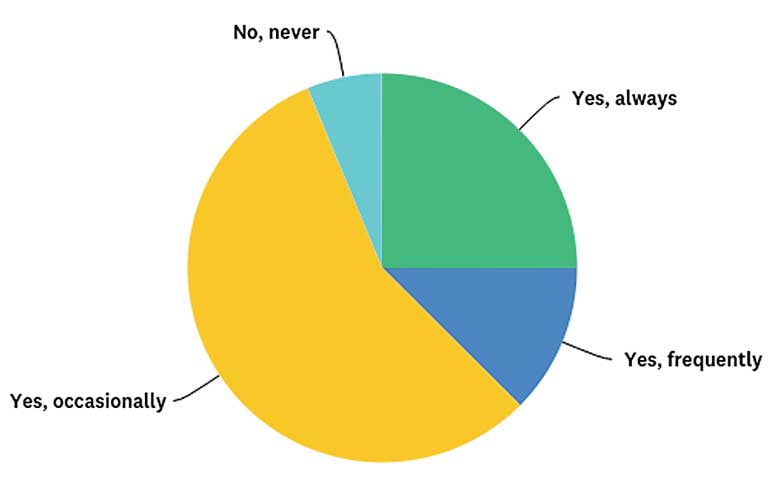Wednesday Feb 18, 2026
Wednesday Feb 18, 2026
Tuesday, 10 October 2017 00:01 - - {{hitsCtrl.values.hits}}

All personnel at every level of the organisation must accept that conflict is an inescapable part of their working life. Whilst most would view conflict in a negative light, handled well, it can also be a birthing ground for creativity and innovation.
A survey of managers and executives in some of Sri Lanka’s leading medium to large sized companies revealed that 40% always or frequently had to deal with conflict in the workplace whilst 56% dealt with it occasionally. Up to 80% of the conflicts, they encountered were between line managers and their reports or between different levels of management.
The question is not really if conflict can be evaded, but how can it be dealt with early on, so that its negative impacts, such as loss of morale and business productivity, do not spiral out of control.
Three of the most common conflict triggering issues reported were related to heavy workload and inadequacy of resources, followed by stress and personality clashes. Clearly these are all important issues, which if ineffectively handled, can soon mutate in to personal attacks, sickness or absence from work, incurring huge personal and financial losses. These same instances handled skilfully, however, can lead to positive outcomes, such as better understanding of others, improved solutions to challenges and major innovation.
The survey carried out by Oxford Psychometrics (UK) revealed that 93% of respondents believed that it was everyone’s responsibility to manage conflict effectively in the workplace and that it is a vital leadership skill. The survey also revealed that effective conflict management is thought to be better amongst the more senior and older employees.
However there was an undisputed view, exceptionally amongst senior executives, that professionally qualified young people with a ‘mediation mindset’, who can help others come up with win-win solutions to their problems, would make highly attractive candidates to their organisations.
[The writer is a Chartered Business Psychologist and an Accredited International Mediator. She is the founder of Oxford Psychometrics (UK), an Occupational Psychology consultancy that specialises in the development of Conflict Confidence Organisations.]